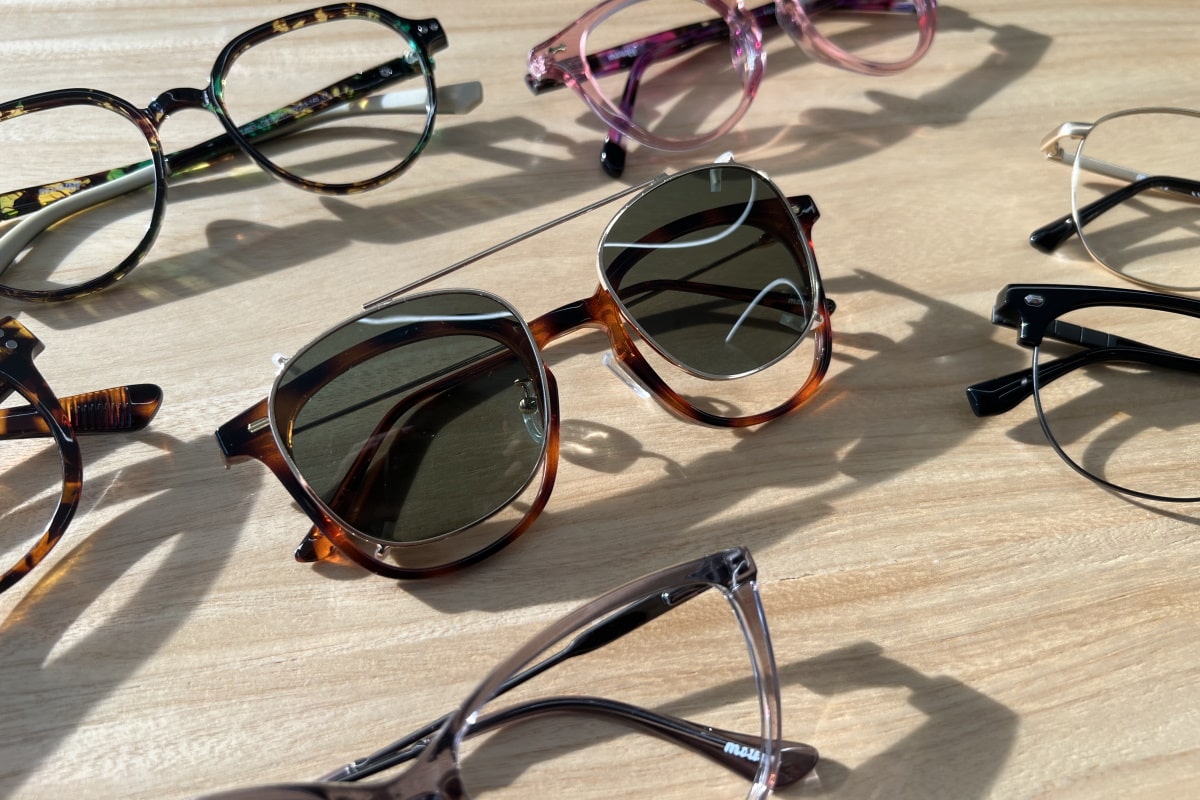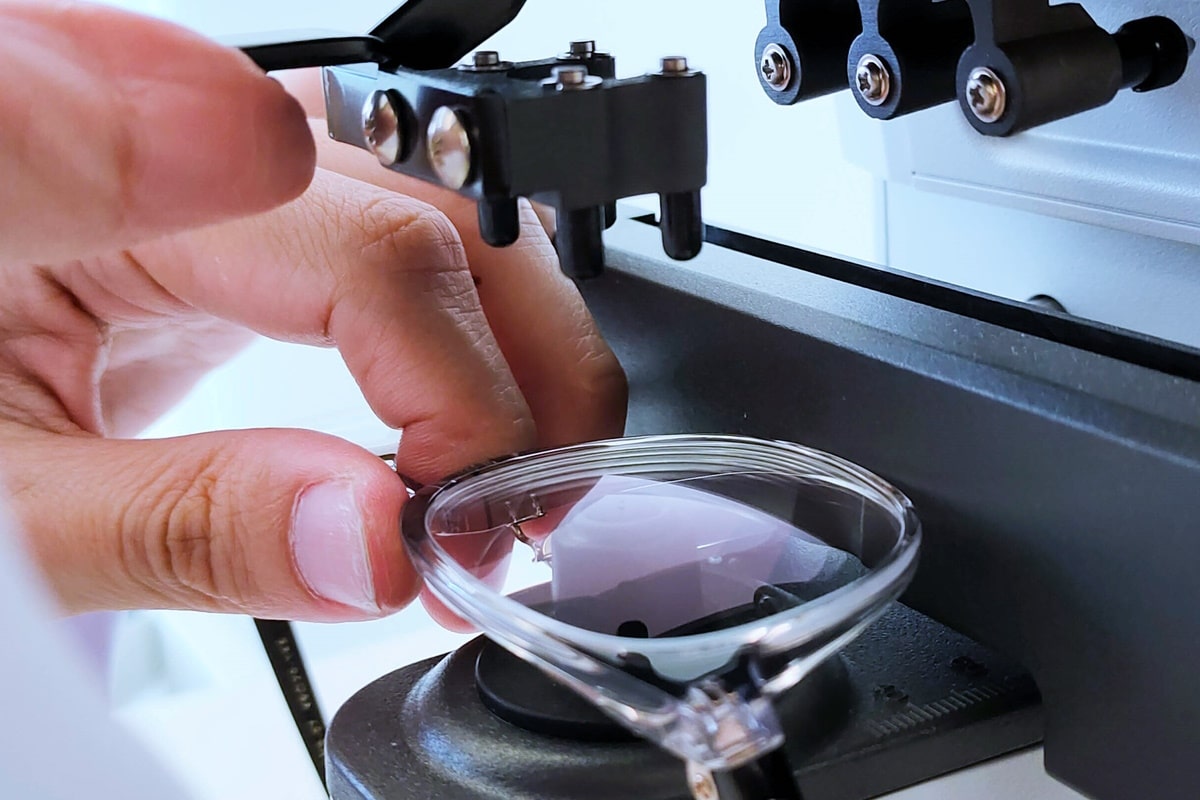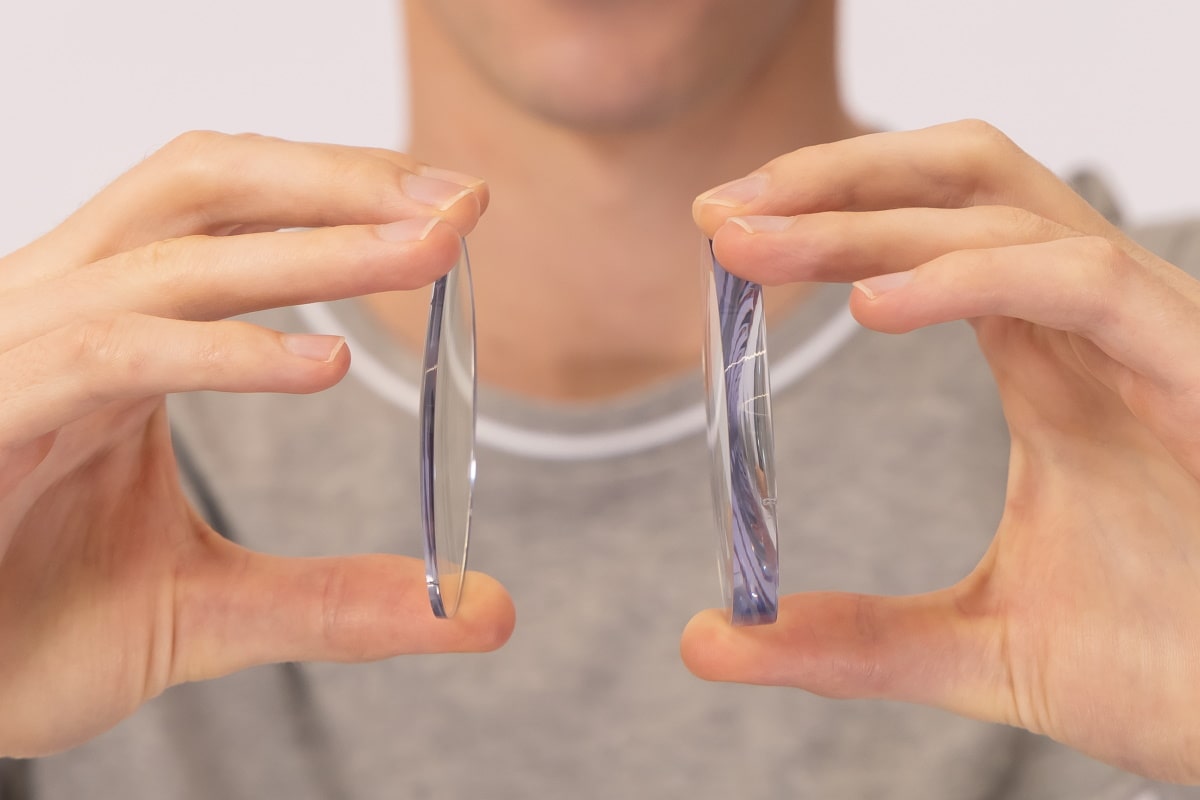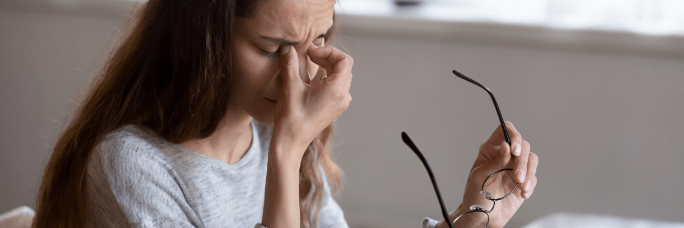New Glasses Making You Dizzy? Here’s How to Adjust to New Glasses
Now that you’ve gotten your brand new pair of glasses, you can finally bid goodbye to the days of squinting at signs and potentially familiar faces.
The only issue now is every time you put on your glasses, the room starts to spin…
Firstly – don’t panic! Whilst it’s common to feel dizzy after switching to a new pair of glasses (even if you’ve worn glasses before), the dizziness nearly always goes away within a few days.
Adjusting to a new pair of glasses can be tricky, which is why we’ve compiled all you need to know about it here. We’ll be talking about why new glasses can cause dizziness, and share some tips to alleviate the worst of the symptoms.
Why do my new glasses make me feel dizzy?
There can be a number of reasons why new glasses can make you feel dizzy. The most common answer is that your brain is still adjusting to them.
Think about it. Just like how our bodies might take time to adjust to a new mattress without waking up sore, so too do our eyes need time to get used to looking at the world through new eyewear. Your eye muscles may have to work overtime or perhaps in a different way than they have before, causing the dizziness you feel now.
The good thing is, our vision is very resilient, so it’ll usually only take up to a few days before you can strut around confidently with your new pair of glasses.
That said, there are various other causes unrelated to muscle strain that could be causing dizziness and warrant a check-up with your doctor.
A general rule of thumb is to visit a doctor if the dizziness or any other symptoms persist a week into getting new glasses. We explain more on this at the end of the article.
Other symptoms you may experience when adjusting to new glasses
In addition to feeling dizzy or slightly off-balance, you may also experience a mix or all of the following symptoms:
- Eye StrainYour eyes may feel tired, or even dry out more often than usual.
- Fish-bowlingThis is when the corners of your vision seem to curve or bend, making it feel like you’re looking through a glass or a, you guessed it, fishbowl.
- DistortionObjects or parts of your vision may look like they’re moving or shifting slightly as you turn your head or move around.
- HeadachesPeriodical throbbing or a dull ache may occur, especially if you wear your new pair of glasses for longer periods of time.
All of these symptoms are common when adapting to a new pair of glasses, so don’t worry if you experience any of them within the adjustment phase.
However, do keep an eye out for symptoms that may not fit into those listed out, such as nausea, pricks of pain, or even extreme or unbearable headaches. These symptoms are not common to getting used to new glasses, so if you experience any of these problems, do contact your eye doctor immediately.
When will my eyes adjust to my new glasses?
The good news is that it generally only takes anywhere between a few days up to a maximum of two weeks for your eyes to fully adjust to your new glasses. However, do keep in mind that everybody’s adjustment period differs.
Usually, you’d feel the worst of it all on the first day. As time wears on, your eyes should adjust accordingly and all of these pesky problems will gradually lessen and disappear.
Here are two different scenarios of adjusting to new glasses:
Scenario 1: New glasses, same lens prescription
If you’ve gotten glasses with the same lens prescription as your previous eyewear, you might be surprised that you’re still feeling a little off-balance or dizzy with the new glasses. However, even tiny, almost seemingly inconsequential details such as differences in frame size and shape may require a short adjustment phase.
Generally, a few days would be enough time for your eyes to adapt to your new glasses. If you take longer to adjust, or if you feel like your discomfort isn’t going away with time, you might want to bring them back to your optician for further adjustments so they’re more comfortable for use in your daily life.
Scenario 2: New glasses, new lens prescription or type
Adjusting to a new lens prescription or type may require a longer adjustment period. This can include changing to progressive, bifocal or trifocal lenses.
For some, the time needed for adjustment may only be a few days, but for others, it may take up to two weeks for their eyes to completely adapt to their new glasses.
Either way, however, it’s important to note that you should gradually feel better and more comfortable with your new glasses as time goes by. If you experience odd persisting symptoms such as constant headaches or nausea, do seek medical attention.
3 tips to help your eyes adjust
During this adjustment period, it’s important that you give your eyes and body enough time, space and rest to ensure that you get used to your new glasses quickly. However, for those who would like to do more to help themselves, here are a few strategies you can use.
Tip #1: Resist the urge to put on your old glasses
The first and possibly one of the best actions you can take for yourself is to just keep away from your old glasses.
It may be comforting and even relieving to reach for your old eyewear, but doing so will only prolong the time you’ll need to fully adjust to your new pair of glasses.
For those who are able to, it’s recommended that you only use your new glasses throughout the day, but if that’s not possible, it’s best to balance out the time you spend wearing both old and new, before gradually weaning off your old glasses.
Of course, do take note that a gradual transition to the new glasses will prolong the adjustment period, so wherever possible, just make a clean break for it and wear your new glasses.
Tip #2: Avoid intensive work during your adjustment period
As you might have already guessed, it’s best for you to take it easy after you get your new glasses.
During this time, your eyes are already more strained than usual, so any tasks requiring intense concentration may tire you out even quicker than usual.
In fact, it’s best for you to save intensive work for after your eyes have gotten used to your new glasses, but if you’re unable to avoid it, then the next best course of action would be to try to take as many breaks as needed in between.
Which brings us to our final tip!
Tip #3: Rest as much as you need
Adjusting to new glasses takes time and patience.
Sometimes all you need are a few days, and your new glasses will feel just like your old pair used to. Other times, it may take up to weeks before you start feeling comfortable.
Either way, do remember to treat yourself with kindness and take regular breaks when needed. Forcing tired eyes to work under stressful conditions, such as in low light or for long hours, would not only put further strain on your body, but also potentially even damage your eyes in the long term.
If you have any tools or kits that could help soothe your eyes, such as a cold compress or even eye masks, don’t be shy to use them! Every little bit helps, and before you know it, your new glasses will feel just as your old pair did.
When should I call my eye doctor?
Generally, if symptoms persist and do not lessen with time, then it’s best to seek the help of your doctor.
This includes if you continue feeling very dizzy or off-balance even after a week of wearing your new glasses, or experience very intense headaches for several days. If you experience symptoms that are not listed as common, such as nausea or actual physical pain, do consult a doctor immediately.
When switching to new glasses, don’t be discouraged by the time it takes to fully get comfortable with your glasses. Instead, give yourself the time you need to adjust and you’ll be rocking your new look in no time!

Written by:
Pixie Tan

Reviewed by:
Dr. Melody Huang












